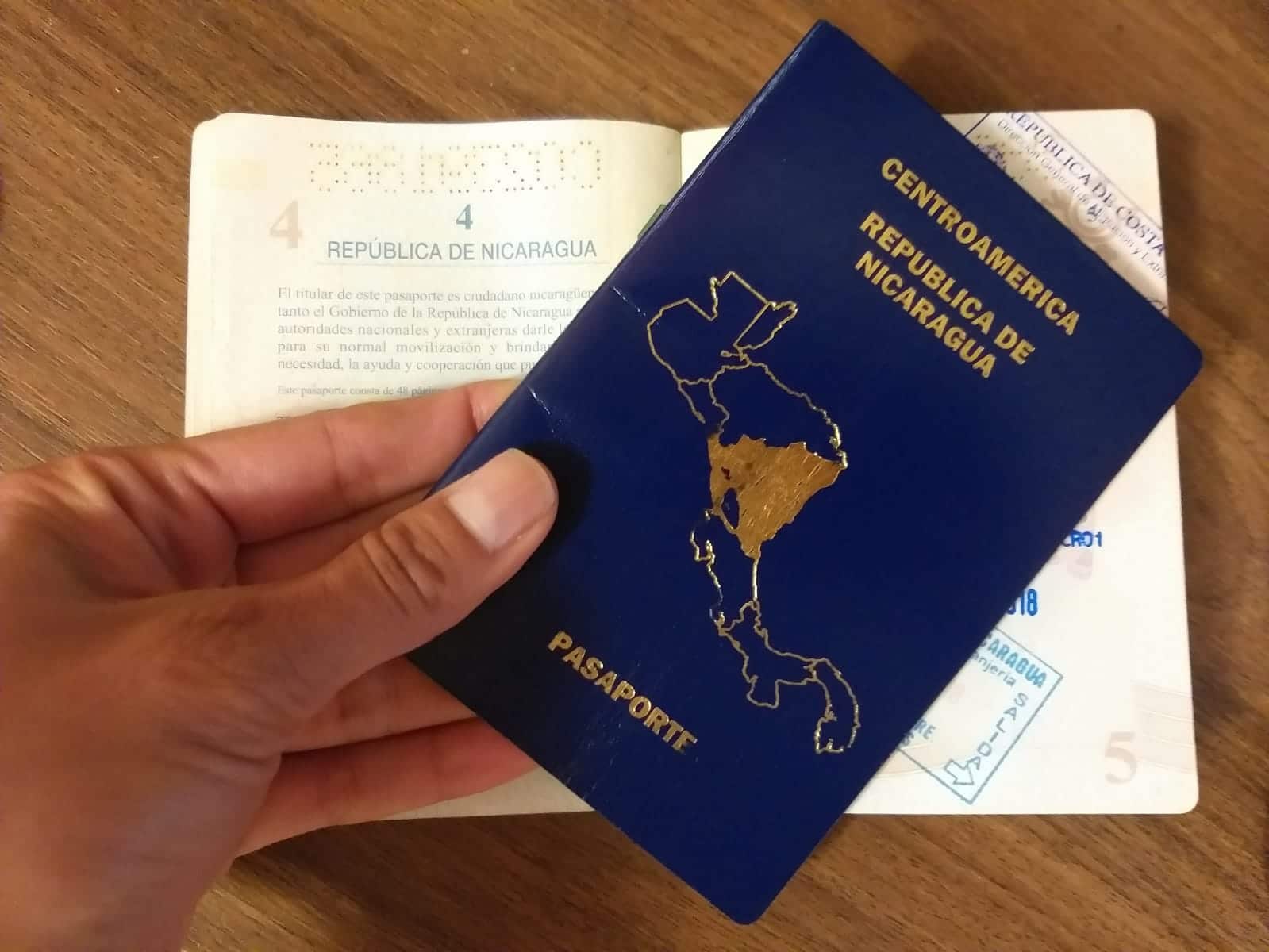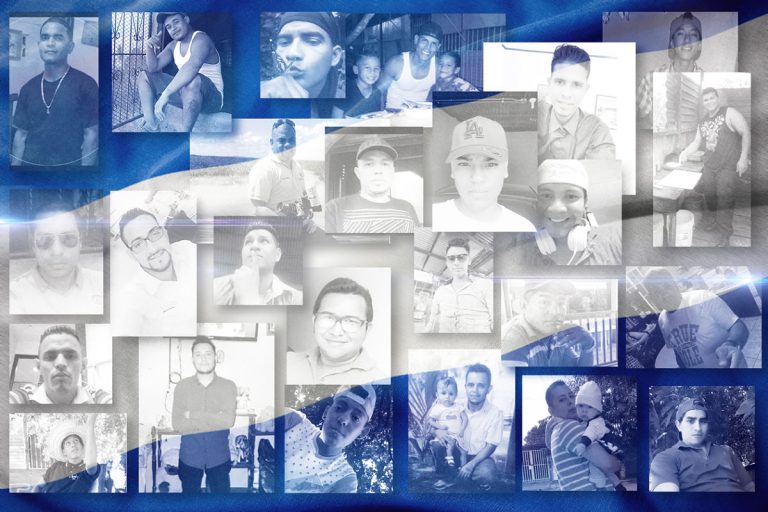25 de marzo 2019

Nicaragua: Public Employees Hindered from Traveling to USA

PUBLICIDAD 1M
PUBLICIDAD 4D
PUBLICIDAD 5D
The Nicaraguan people don’t want a pardon, much less an amnesty for dictators Ortega and Murillo.

Recent history has witnessed tragic crimes against humanity: those that occurred in Stalin’s Russia, Mao Zedong’s China, and in Cambodia under Pol Pot to name some of the most infamous. Of course, one of the most tragic events occurred under the Nazi regime during the Second World War, when Hitler had at least six million Jews murdered, the greatest holocaust in the history of humanity.
Today, many schools in Germany teach the history of this holocaust as a school subject. There are those who propose that this same subject become a required class, “so that it not be repeated”. This latter phrase is reiterated without rest: so that it not be forgotten and the memories of the barbarity carried out by the Nazi regime be kept alive to assure that all humanity never has to go through that again. The past must be remembered to forge the future.
We Nicaraguans don’t like to remember – we prefer to forget. We’re a society where, due to trauma or decrees, we’ve forgotten and stopped talking. Until now.
The word “amnesty” comes from a Greek word that means “without memory (or recall), or mutual and general forgetting of past things.” It’s been a common thread in our political history.
In 1829, the first amnesty granted by a government was reported. Over the next 138 years until 1967, there were 41 different amnesties granted, an average of one every 40 months. Over the 11 years that the Sandinistas were in power during the 80s, the government of Daniel Ortega granted an amnesty every fifteen months. From that time on, Daniel Ortega prescribed to us – and continues to prescribe – a profound amnesia, so that once more we forget the crimes that he, his wife and their allies have committed.
Amnesty #42, the first one decreed by Daniel Ortega in 1983, was to make us forget the massacre committed against 42 indigenous Miskito communities during the so-called Red Christmas. During this period, a great number of indigenous people – the exact number was never established – were killed when they opposed the transfer to new settlements, far from their communities, to avoid having these communities serve as bases of support for the Contra.
The last amnesty of that era was number 49, signed by Sergio Ramirez in 1990, immediately after Ortega lost the elections to Violet Barrios de Chamorro. That decree granted amnesty to the public employees who had been involved in misappropriation of the public wealth. With this measure, they ordered us to forget everything that had been stolen and divided up during the famous pinata, in the interests of a supposed peace and reconciliation. Afterwards, under the government of Mrs. Barrios, Amnesty #50 was decreed, confirming once again the pardon for all the political and common crimes committed up until this date by anyone.
In contrast to an amnesty, a pardon stems from the recognition of a crime. The person who receives a pardon continues to be seen as guilty, but they’re exonerated from the punishment or sentence. In other words, they’re granted a pardon without forgetting the crime that was committed.
So, for example, if a person commits a robbery or a murder, the pardon leaves as established fact that this person stole or murdered, but they are forgiven the sentence established for the crime committed.
It’s very important to recognize in our society that while amnesty forces us to erase the crime committed from our memories, a pardon recognizes – and recalls – the crime, although the punishment is dispensed with. A murderer will always be a murderer. A thief will always be a thief, although as a society we grant them a pardon.
Thirty-six years after the Red Christmas, Daniel Ortega and Rosario Murillo, face a series of sanctions from the international community for crimes against humanity that include: 1) ordering the assassination of over 400 people; 2) accusing around 700 men and women of non-existent crimes and keeping them unjustly jailed and tortured; 3) forcing some 60,000 people into exile; and 4) a number still undetermined of missing.
Simply put, the people are tired of their outrages, and this time are not going to pardon or forget. Nevertheless, the Dictator has decided to call once again for a dialogue that from its inception has been doomed to failure. All of us in Nicaragua know that he’s not willing to move up the elections, much less resign.
The question, then, is: What is Ortega seeking with this dialogue? What the Dictator wants is to gain time and make it to 2021. Or perhaps, depending on the circumstances, to create the conditions for proclaiming Amnesty #53, so that he and his allies can benefit from it. In other words, they want to decree that we forget and pardon their crimes (against humanity).
It’s within that context that he maintains as his bargaining card the nearly 700 political prisoners, and it’s within that same context that his judges have applied and will continue applying completely absurd guilty verdicts and sentences of up to 250 years to the innocent people that the Dictator is holding in his jail cells.
Amnesty #53 is going to arrive proposing pardon and forgetting in the name of peace and reconciliation for both sides; I’ll pardon these terrorists who came to interrupt the paradise that my wife and I were building, but you must forgive me the acts of barbarity that I, my accomplices and my partners have committed.
The only problem for Daniel and Murillo is that since the current crisis began in April of last year, and in honor and memory of those who have sacrificed their lives and their liberty for a new Nicaragua, the slogan being repeated in unison is “NEITHER PARDON NOR FORGETTING!” The Nicaraguan people don’t want a pardon, much less an amnesty for Dictators Ortega and Murillo. For that reason, from today on, we warn: #NoALaAmnistia53 [No to Amnesty #53] and we repeat: #NiPerdonNiOlvido [Neither pardon nor forgetting].
Thank you for reading our English section, brought to you in collaboration with Havana Times. If you wish to subscribe to our English Weekly Newsletter, you can do it here. Please spread the word and share this link with your friends, family or contacts.
Regards,
Archivado como:
PUBLICIDAD 3M
PUBLICIDAD 3D